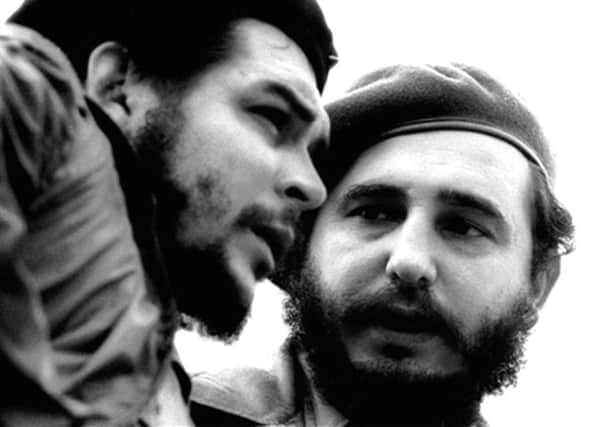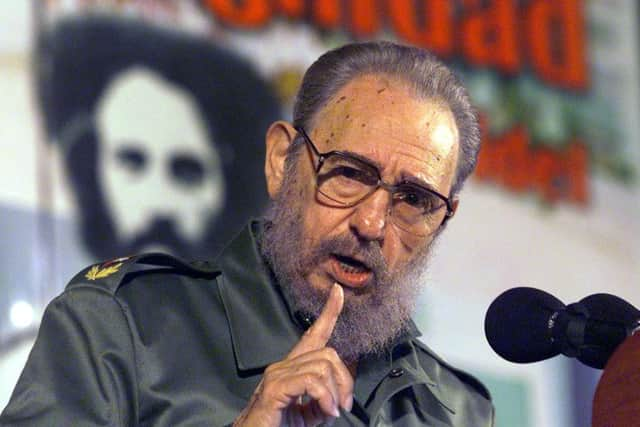Former Cuban Leader Fidel Castro dies, aged 90


Castro’s reign over the island-nation 90 miles from Florida was marked by the US-backed Bay of Pigs invasion in 1961 and the Cuban Missile Crisis a year later that brought the world to the brink of nuclear war.
The bearded revolutionary, who survived a crippling US trade embargo as well as dozens, possibly hundreds, of assassination plots, died eight years after ill health forced him to formally hand power over to his younger brother Raul, who announced his death late on Friday.
Advertisement
Hide AdAdvertisement
Hide AdWith a shaking voice, President Raul Castro said on state television that his older brother died at 10.29pm local time. He ended the announcement by shouting the revolutionary slogan: “Toward victory, always!”


Carlos Rodriguez, 15, was sitting in Havana’s Miramar neighbourhood when he heard that Fidel Castro had died.
“Fidel? Fidel?” he said as he slapped his head with his hand in shock. “That’s not what I was expecting. One always thought that he would last forever. It doesn’t seem true.”
“It’s a tragedy,” said 22-year-old nurse Dayan Montalvo. “We all grew up with him. I feel really hurt by the news that we just heard.”
Castro overcame imprisonment at the hands of dictator Fulgencio Batista, exile in Mexico and a disastrous start to his rebellion before triumphantly riding into Havana in January 1959 to become, aged 32, the youngest leader in Latin America.


For decades, he served as an inspiration and source of support to revolutionaries from Latin America to Africa.
His commitment to socialism was unwavering, though his power finally began to fade in mid-2006 when a gastrointestinal ailment forced him to hand over the presidency to Raul in 2008, provisionally at first and then permanently. His defiant image lingered long after he gave up his trademark Cohiba cigars for health reasons and his tall frame grew stooped.
“Socialism or death” remained Castro’s rallying cry even as Western-style democracy swept the globe and other communist regimes in China and Vietnam embraced capitalism, leaving the island of 11 million people an economically crippled Marxist curiosity.
Advertisement
Hide AdAdvertisement
Hide AdHe survived long enough to see Raul Castro negotiate an opening with US President Barack Obama on December 17 2014, when Washington and Havana announced they would move to restore diplomatic ties for the first time since they were severed in 1961. He cautiously blessed the historic deal with his lifelong enemy in a letter published after a month-long silence.
Fidel Castro Ruz was born on August 13 1926, in eastern Cuba’s sugar country, where his Spanish immigrant father worked first recruiting workers for US sugar companies and later built up a prosperous plantation of his own.
Castro attended Jesuit schools, then the University of Havana, where he received law and social science degrees. His life as a rebel began in 1953 with a reckless attack on the Moncada military barracks in the eastern city of Santiago. Most of his comrades were killed and Fidel and his brother Raul went to prison.
Fidel turned his trial defence into a manifesto that he smuggled out of jail, famously declaring: “History will absolve me.”